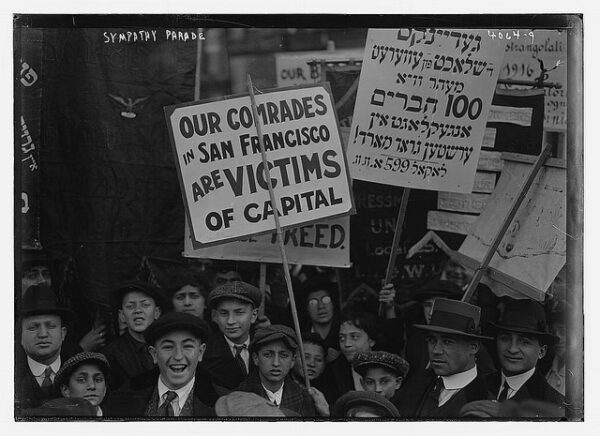Blog

CALIFORNIA LABOR LAWS 2015 EMPLOYER RESPONSIBILITY FOR STAFFING AGENCY LABOR VIOLATIONS
Business Must Carefully Balance the Risks Effective January 1, 2015, California Assembly Bill 1897 makes employers that hire workers from staffing agencies automatically liable for wages and workers’ compensation violations by the staffing agencies. Labor unions promoted this new law. The California Chamber of Commerce opposed it. AB 1897 makes it easier for a worker […]

CALIFORNIA LABOR COMMISSIONER PROVIDES THE FAQ’S ON NEW PAID SICK LEAVE BENEFITS LAW
As covered in Mandatory Paid Sick Leave for California Employees, AB 1522 requires each California employer, regardless of size (and except for those with collective bargaining agreements and other very limited exemptions), to provide paid sick leave benefits to any temporary, part-time and full-time employee once he or she has worked for that company in […]

SAN FRANCISCO MINIMUM WAGE ESCALATES TO $11.05 AND BEYOND
Rate Effective January 1, 2015 Starting January 1, 2015, employers (regardless of where located) must pay wages of at least $11.05 per hour to each employee who performs work in San Francisco (including temporary and part-time employees). The minimum wage requirement, set forth in the November 4, 2014 San Francisco Minimum Wage Ordinance, applies to […]

MILEAGE REIMBURSEMENT RATES FOR 2015
IRS has pumped it up again In a December 10, 2014 directive, the Internal Revenue Service (IRS) has increased its optional standard mileage reimbursement rate for an employee’s business use of his or her vehicle from 56 cents in 2014 to 57.5 cents in 2015. The government calculates the mileage rate by an annual study […]

EMPLOYMENT ARBITRATION AGREEMENTS
In California, the Battle Continues While private parties doing business are free to agree to arbitrate any dispute between them outside of the courts, an employer who presents a “take-it-or-leave-it” arbitration requirement to a job applicant as a condition of hiring presents special problems. California’s appeals courts have been particularly dedicated – or perhaps in […]

CALIFORNIA’S PAID SICK LEAVE NOTICE AND POSTER MUST IMPLEMENTED JANUARY 1, 2015
Wage Theft Notice and Poster Template Now Available As reported in “Mandatory Paid Sick Leave for California Employees” California’s Healthy Workplaces, Healthy Families Act (Assembly Bill [AB] 1522) requires nearly all California employers to provide paid sick leave to their employees. While affected employers do not need to provide paid sick leave until July 1, […]

CALIFORNIA LABOR LAWS 2015 CALIFORNIA EXPANDS NATIONAL ORIGIN DISCRIMINATION DEFINITION
The Effect of an “Undocumented” Driver’s License On Workplace Policy and Procedure is Touchy In 2013, Assembly Bill [AB] 60 created Vehicle Code section 12801.9 authorizing the California Department of Motor Vehicles (DMV) to provide driver’s licenses to undocumented individuals. AB 60 thus directs the DMV to accept alternative satisfactory forms of proof of identity […]

CALIFORNIA LABOR LAWS 2015 INTERNS AND TRAINEES NOW PROTECTED FROM HARASSMENT AND DISCRIMINATION
Effective January 1, 2015, California Assembly Bill 1443 plugs a gap that had left interns, trainees, and others lawfully involved in unpaid work experience unprotected from unlawful harassment and discrimination. Since its enactment in 1980, California’s Fair Employment and Housing Act (FEHA) has prohibited employers from discriminating against “any person … in compensation or in […]

CALIFORNIA LABOR LAWS 2015 NEW REQUIREMENT FOR COMPUTER PROFESSIONAL OVERTIME EXEMPTION
Minimum Hourly Pay Rate to Increase January 1, 2015 California Labor Code section 515.5 exempts certain employees in the computer software field from overtime compensation. The criteria include set minimum compensation. The California Department of Industrial Relations (DIR) recently increased this minimum, effective January 1, 2015. To comply with the section 515.5 exemption, California employers will […]

THE ANNALS OF TRADEMARK NUMBER 3
Selecting a Trademark Part 2 Distinctiveness In our last trademark blog, we described steps for a prudent business owner to take in choosing a mark that will avoid conflict with existing marks. The second critical consideration is choosing a mark sufficiently “distinctive” from your product or service to permit its registration or protection. An understandable […]
